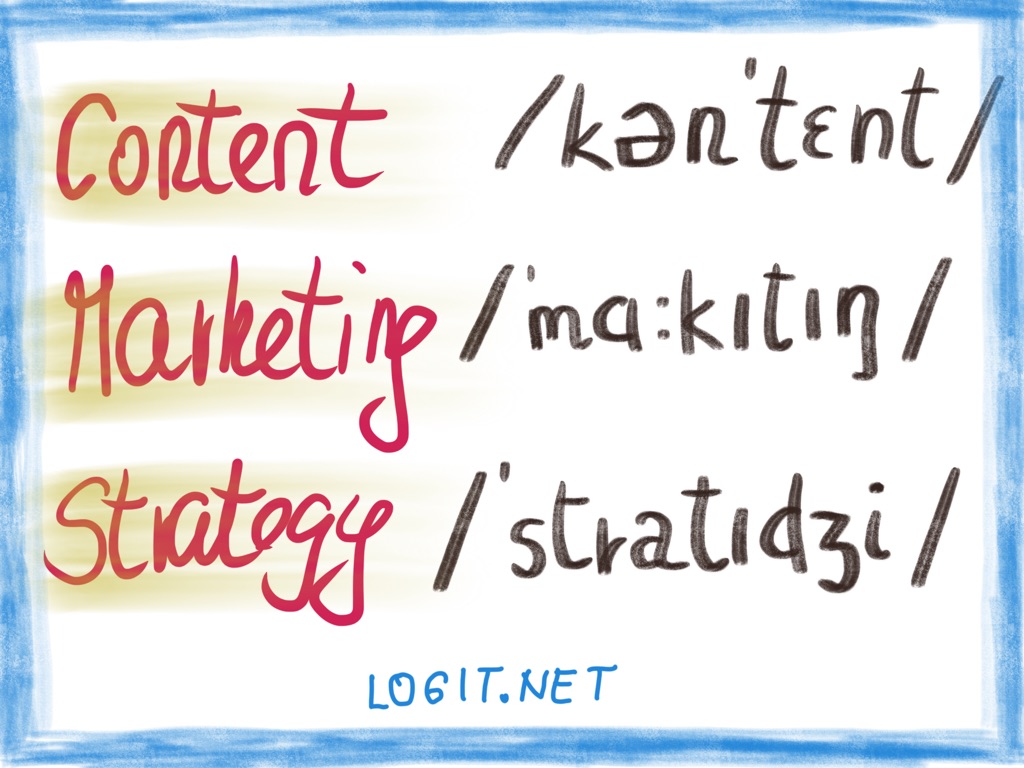(This article is part 2 of the Content Marketing Strategy for Absolute Beginners article series.)
Basic Definitions

What Is Content?
Content is any piece of text, image, video, or information in any format which companies purposefully create and publish on their websites to inform, educate, entertain, or help their readers.
This very article is an example of a content in written form, published with the purpose to educate our readers about a specific topic (in our case, about content marketing. This is so meta - we know.)
What Is Content Marketing?
Marketing has one job, and one job only: to supply sales with qualified business leads (in business-to-business terminology).
Content marketing is no different: it's a marketing discipline which uses content to attract enough qualified business leads so that sales can convert those leads into customers.
For example, this article is part of our company's content marketing effort. We're using this written article to attract readers who want to learn how to start with content creation. We're doing this with purpose: we know that some of our readers will check out our content writing templates, and that a small percentage of readers will be interested in our content writing services.
Remember that there's always a purpose and a goal behind content marketing. It's never practiced for its own sake.
Also, content is just one tool in a marketer's arsenal. Let's compare content marketing with another marketing discipline, advertising, which uses a different tool:
- Content marketing uses content to supply sales with leads.
- Advertising uses ads to supply sales with leads.
It's up to the marketer to figure out which tool to use. Not all tools are fit for all purposes. Different tools work differently different scenarios. Marketer's job is to figure out what's the best tool for the job.
What Is Strategy?
Let's define strategy first. Michael Porter, one of the world's leading experts on business strategy, said this:
Strategy explains how an organization, faced with competition, will achieve superior performance.
Therefore, content marketing strategy explains how your company, faced with competition, will use content marketing to achieve superior performance. It's using content to outperform your competitors.
What Is Content Marketing Strategy?
Porter said that creating value - not beating your rivals - is at the heart of competition. One of content marketing's biggest advantages over other marketing disciplines is its unique capability to create immense value for customers. Companies discovered the power of content marketing centuries ago, but it was the internet which first made it possible to mass-distribute content at a very low price.
Porter also said this:
- Competitive advantage is about creating value.
- You should create value in a unique way, in a way your competitors don't.
- Competing to be unique is about serving different groups of customers and needs.
How this applies to content marketing strategy:
- Because content creates value, practicing content marketing becomes competitive advantage.
- You should use content in ways your competitors do not. For example, just by publishing content, you can outperform many competitors online who don't publish anything at all.
- You can use tailored content to create value for any desired group of customers. For example, by publishing a price list on your website, you're purposefully targeting customers who are using price as one of the key criteria for creating a shortlist of acceptable vendors.
Six Elements of Content Marketing Strategy
So, content marketing strategy = using content to outperform competitors. But how exactly do I do that? - we hear you ask. We'll have to leave that for another set of articles in the series (it wouldn't fit here). For now, let's just say that defining content marketing strategy means defining six key elements: goal, audience, message, content, channels, process.
This article is the product of our own strategic content marketing. We carefully thought about the six elements and came up with strategy which works uniquely for us:
- Goal: we wrote down how we expect our business to improve by publishing this article.
- Audience: we defined a narrow group of ideal readers which we want to reach.
- Message: we figured out what we want to say with our content and how we want to say it.
- Content: we defined what kind of content we want to create to get our message into the hands of our audience in the most effective way (given our best skills and limited resources).
- Channels: we analyzed where it would be best to promote our content to reach our audience.
- Process: we documented all the little steps which get our content written and published.
You too will use the six elements to define your content marketing strategy, tailored specifically to the beginner level.
(Follow us on Linkedin, Twitter or Facebook to receive an update when we publish our next article.)
References
- [BOOK] Understanding Michael Porter, goodreads.com
- [ARTICLE] History of Content Marketing, wikipedia.org